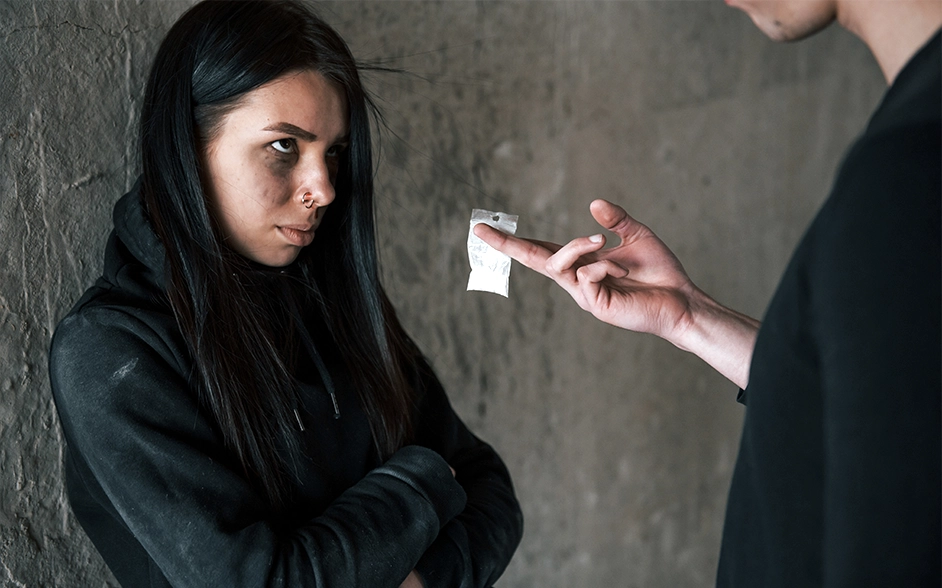- Mumbai, New Delhi, Bangalore
- (+91) 81518 30000
- WhatsApp Now
- contact@vedawellnessworld.com
Substance abuse doesn’t just harm your body — it slowly unravels your mind, relationships, career, and identity. Yet in the UAE, many people delay seeking help due to persistent myths about addiction and recovery. This blog explores the real effects of drug abuse on health and life, and confronts the common misconceptions preventing people from accessing drug abuse treatment in Dubai, Abu Dhabi, and Sharjah.
Substance abuse impacts every system in the body and every domain of your life.
These aren’t exaggerations — they’re patterns reported in countless recovery stories, from Sharjah to Silicon Valley.
Despite increasing awareness, misinformation still rules many conversations around addiction — especially in conservative or high-pressure environments. Let’s tackle some of the most damaging myths head-on.
Reality: Addiction is a chronic disease, not a lack of willpower.
The World Health Organization classifies it as a brain disorder. Just like diabetes or depression, it requires medical and psychological intervention. In the UAE, many high-functioning individuals seek drug abuse treatment in Abu Dhabi or Dubai to regain control, not because they’re “weak.”
Reality: The earlier you seek help, the better the outcome.
Waiting until things hit rock bottom makes recovery harder. People now seek drug abuse treatment in Sharjah and other cities for early-stage dependency, stress-related misuse, or emotional coping issues. You don’t need to “crash” before you begin healing.
Reality: Confidentiality is protected by law and professional ethics.
Modern rehab centers in Dubai and Abu Dhabi offer discreet admissions, encrypted records, and private therapy options. Some people even choose to recover remotely through international programs that provide virtual therapy from abroad — no exposure, no judgment.
Reality: Recovery is possible — and millions have done it.
Relapse isn’t failure; it’s part of the learning curve. With a proper care plan, aftercare support, and emotional tools, long-term recovery is achievable. Many rehab programs in the UAE now focus on relapse prevention, not just detox.
Reality: Few people succeed without structured support.
Addiction rewires the brain. While motivation is important, without a professional plan — including therapy, detox, and accountability — relapse is likely. Drug abuse treatment in Dubai, Abu Dhabi, and Sharjah includes not just stopping, but learning how to stay stopped.
Today, the UAE offers both public and private paths for recovery. People can choose based on their needs, cultural fit, financial situation, and urgency.
Recovery isn’t just physical detox. It’s emotional repair, neural rewiring, and relationship restoration.
The best programs now include:
Some UAE residents who prefer privacy or holistic models even explore international options, where wellness centers abroad offer integrative recovery plans and discreet remote therapy — giving individuals the space to heal without societal pressure.
Substance abuse ruins more than health — it dims careers, severs connections, and drains self-worth. But recovery rebuilds all of that.
If you or someone you care about is showing signs of dependence, don’t wait for the myth of “rock bottom” to become reality. Access to drug abuse treatment in Dubai, Abu Dhabi, or Sharjah is available, confidential, and increasingly compassionate.
Because healing isn’t just possible — it’s already happening for thousands.
Yes. All licensed rehab centers maintain strict confidentiality. Some also offer anonymous consultations and remote treatment options.
Many private and government workplaces encourage mental health care. Going voluntarily and proactively may protect your role.
Increasing tolerance, secrecy, mood swings, and interference with work or relationships are key red flags.
Yes. Alongside local rehab centers, several international programs now offer virtual therapy and recovery support — ideal for those seeking privacy or minimal disruption to their daily life.
